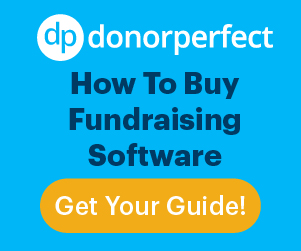Small tax-exempt organizations whose annual gross receipts are normally $25,000 or less may be required to electronically submit Form 990-N, also known as the e-Postcard, unless they choose to file a complete Form 990 or Form 990-EZ.
The Pension Protection Act of 2006 added this filing requirement to ensure that the IRS and potential donors have current information about your organization.
Due Date of the e-Postcard
The first e-Postcards are due in 2008 for tax years ending on or after December 31, 2007. The e-Postcard is due every year by the 15th day of the 5th month after the close of your tax year. For example, if your tax year ended on December 31, 2007, the e-Postcard is due May 15, 2008. You cannot file the e-Postcard until after your tax year ends.
Information You Will Need To File the e-Postcard
The e-Postcard is easy to complete. All you need is the following information about your organization. Click on any of the links below, if you need more information about the item.
Employer identification number (EIN), also known as a Taxpayer Identification Number (TIN)).
Legal name and mailing address
Any other names the organization uses
Name and address of a principal officer
Web site address if the organization has one
Confirmation that the organization’s annual gross receipts are normally $25,000 or less
If applicable, a statement that the organization has terminated or is terminating (going out of business)
Who Must File
Most small tax-exempt organizations with gross receipts that are normally $25,000 or less must file the e-Postcard. Exceptions to this requirement include:
Organizations that are included in a group return, and
Churches, their integrated auxiliaries, and conventions or associations of churches.
The following organizations cannot file the e-Postcard but must file different forms instead:
Tax-exempt organizations with annual gross receipts that are normally greater than $25,000 must file Form 990 or Form 990-EZ;
Private foundations must file Form 990-PF;
Section 509(a)(3) supporting organizations that are required to file Form 990 or Form 990-EZ.
IRC section 527 (political) organizations required to file an annual exempt organization return must file Form 990 or Form 990-EZ;
Late Filing or Failure To File the e-Postcard
If you do not file your e-Postcard on time, the IRS will send you a reminder notice but you will not be assessed a penalty for late filing the e-Postcard. However, an organization that fails to file required e-Postcards (or information returns – Forms 990 or 990-EZ) for three consecutive years will automatically lose its tax-exempt status. The revocation of the organization’s tax-exempt status will not take place until the filing due date of the third year.
Note: Not all organizations that file an e-Postcard are eligible to receive charitable contributions that are tax-deductible under Internal Revenue Code section 170. SeeSearch for Charities, to determine whether contributions to a particular organization are tax-deductible.
Additional Information
Temporary Regulations (November 15, 2007)
Educational tools : Help spread the word – Help small tax-exempt organizations stay exempt!
EO Update : Subscribe to Exempt Organization’s regular email newsletter that highlights new information posted on the Charities and Non-Profits pages of IRS.gov.
News release IR 2009-49 (May 6, 2009) (due date reminder)
News release IR-2008-25 (February 25, 2008) (announcing launch of e-Postcard electronic filing system)
Source: http://www.irs.gov/charities-non-profits/?id=169250,00.html
DISCLAIMER: This information is not intended to provide legal or accounting advice, or to address specific situations. Please consult with your legal or tax advisor to supplement and verify what you learn here.







